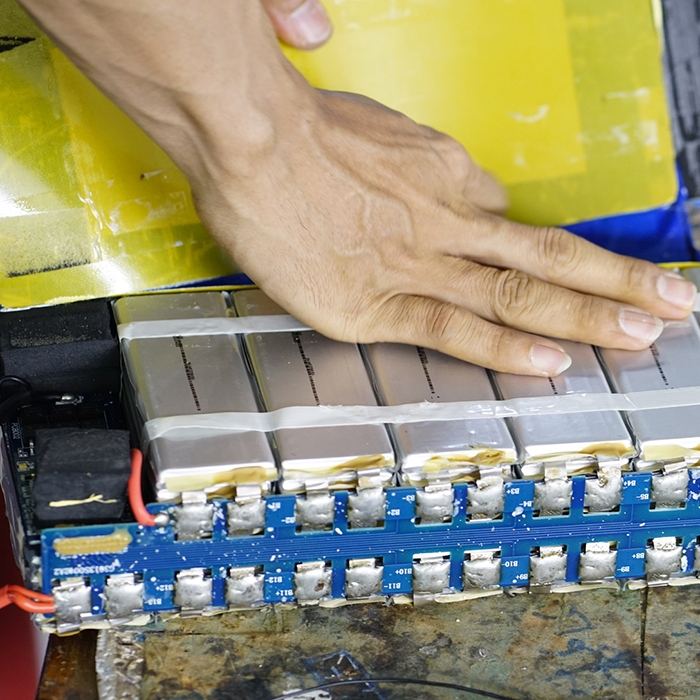Lithium-ion battery failure caused by thermal runaway has garnered a great deal of attention in recent years, including notable failures in the spaces of consumer products, electric vehicles, and energy storage systems. The growing public awareness of hazards associated with thermal runaway in lithium-ion batteries has coincided with increased scrutiny when the batteries are found at fire scenes.
So, what causes thermal runaway in lithium-ion batteries and how can the origin of the failure be accurately determined?
Based on our more than 25 years of conducting battery failure analysis, Exponent's Polymer Science & Materials Chemistry Principal Scientist Ryan Spray, Ph.D., will discuss scientific approaches and techniques for investigating lithium-ion battery failure in thermal runaway events at the 2023 ECS Meeting in Gothenburg, Sweden. Read more and register below.

"Culprits or Collateral Damage? The Science Behind Lithium-Ion Battery Failure Investigations"
TUESDAY, OCT. 10 | 10:00-10:40 A.M. CEST
Speaker: Ryan Spray, Ph.D.
Lithium-ion batteries can go into thermal runaway due to heating from an external fire, even if they are not the cause of the fire. The fire investigator and other experts involved in failure analysis need to follow accepted scientific methods when performing an origin and cause analysis, including when lithium-ion batteries are involved. This presentation will cover many of the tools that can be used and the reasoning that can be applied when analyzing lithium-ion batteries at fire scenes, as well as in the post-scene analysis of batteries and battery-containing devices, including:
- Techniques for understanding heat release and heat release rate during thermal runaway failures
- The associated literature that may be relied upon to estimate heat release based on chemistry and capacity of the cells in question
- Electrochemical and metallurgical techniques that may inform the conditions that likely existed during the failure of the battery

